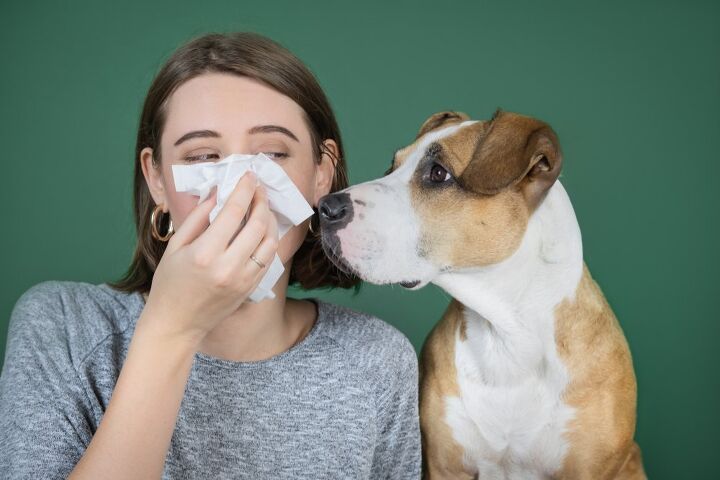Is a Potential Dog-Allergy Vaccine on the Horizon?

For those who suffer from fits of sneezing, itchy eyes and that non-stop runny nose whenever they come into contact with a dog, relief may be just around the corner. If you’re prepared to sit, stay, and be patient.
You see, researchers at Japan’s Osaka Prefecture University (OPU) have spent years exploring the seven main allergens known to provoke these types of over-the-top physical reactions to our canine buddies. And they’ve been able to zero in on the one key molecular structure that is responsible for the majority (50-75%) of unusually strong reactions to the real-time or recent presence of a dog. And you may be surprised to learn that it has nothing to do with fur and shedding – it’s found in the dog’s tongue tissue, salivary glands, and skin.
Why does any of this matter? Because these good folk in Japan are working on a hypoallergenic vaccine for humans.
Their findings – published in the Federation of European Biochemical Societies Journal in Fall 2021– show hope that this unique research will one day be able to cure people of their dog allergies by artificially inducing immune tolerance. Now, don’t stock up on the dog treats just yet because we’re talking important yet preliminary findings.
Researchers are still trying to identify what’s called “epitopes” for this specific molecule. The epitope is what your immune system uses to recognize and determine the type of response you’re going to have when confronted with dog-related allergens. In other words, it decides if “all’s good” or you’re in for a “sneeze-fest” after patting Rover.
According to Allergy Research Specialist at OPU and the lead author on this study, Takashi Inui, “We want to be able to present small doses of these epitopes to the immune system to train it to deal with them, similar to the principle behind any vaccine.” That makes sense and sounds fairly straightforward, right? But how tricky will it be to identify this all-important epitope?
Without overwhelming you with lots of tech-talk… epitopes bind to the surface of your immune system’s antibodies similar to the way one specific jigsaw puzzle piece will fit with another. In the case of this “world’s first ever” dog allergy vaccine, researchers already know the pieces are out there – it’s all down to finding and then marrying them up. And identifying that single, all-important molecule that provokes a negative response was a key first step in solving this proverbial puzzle.
But this research doesn’t just target dog allergies. Extensive effort has been made over the years toward developing a range of epitope-focused vaccines. Primarily because of the potential to apply this science toward a wide range of human-related maladies including seasonal allergies. For many, the creation of a hypoallergenic vaccine will mean being able to own a dog, visit friends and family who own pets, travel in vehicles where a dog has ridden…. you get the picture. It opens up a world of freedoms and social opportunities that once upon a time would have been unthinkable for those dealing with pet allergies. And just think of the money saved by not having to stock up on Kleenex?

Sharing space with three seriously judgy Schnoodles and a feline who prefers to be left alone. #LivingMyBestLife
More by Mary Simpson























